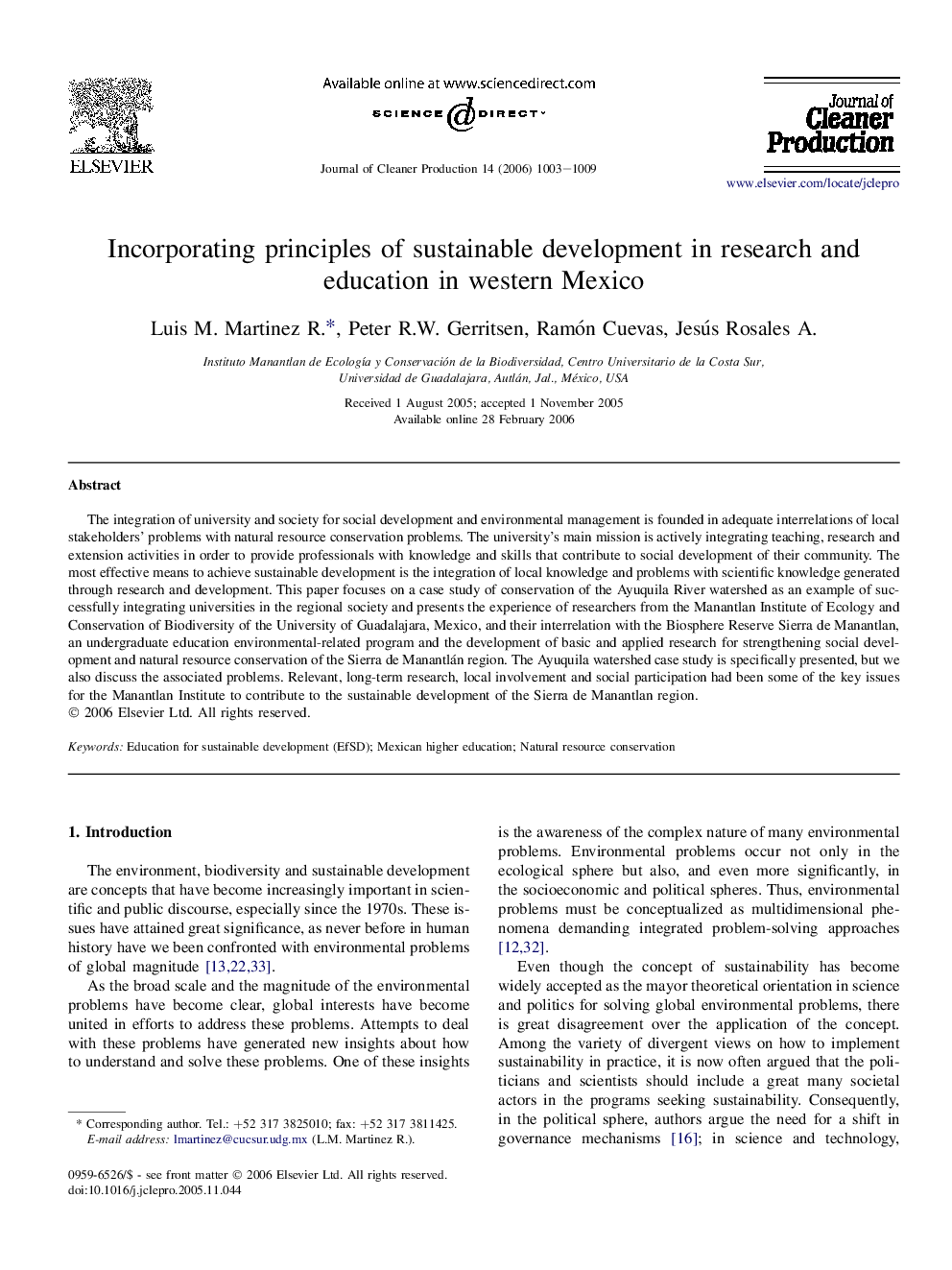| Article ID | Journal | Published Year | Pages | File Type |
|---|---|---|---|---|
| 1747489 | Journal of Cleaner Production | 2006 | 7 Pages |
The integration of university and society for social development and environmental management is founded in adequate interrelations of local stakeholders' problems with natural resource conservation problems. The university's main mission is actively integrating teaching, research and extension activities in order to provide professionals with knowledge and skills that contribute to social development of their community. The most effective means to achieve sustainable development is the integration of local knowledge and problems with scientific knowledge generated through research and development. This paper focuses on a case study of conservation of the Ayuquila River watershed as an example of successfully integrating universities in the regional society and presents the experience of researchers from the Manantlan Institute of Ecology and Conservation of Biodiversity of the University of Guadalajara, Mexico, and their interrelation with the Biosphere Reserve Sierra de Manantlan, an undergraduate education environmental-related program and the development of basic and applied research for strengthening social development and natural resource conservation of the Sierra de Manantlán region. The Ayuquila watershed case study is specifically presented, but we also discuss the associated problems. Relevant, long-term research, local involvement and social participation had been some of the key issues for the Manantlan Institute to contribute to the sustainable development of the Sierra de Manantlan region.
